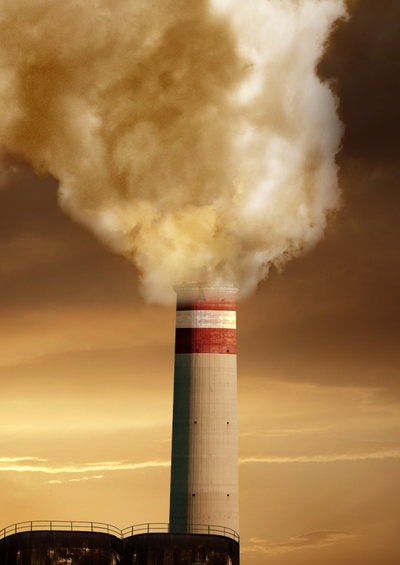The Hard Facts of Global Corruption
Action rarely follows rhetoric when it comes to global corruption.
December 5, 2014

It takes two to tango to rob national treasuries and undermine global commerce: the government officials and politicians who take the bribes and, of course, the corporations who pay the bribes.
Just how rotten current conditions are is evident from two new reports – Transparency International’s index of bribe taking and a comprehensive OECD analysis of corporate bribe paying.
Transparency International’s 2014 Corruption Perceptions Index (CPI) covering 175 countries reveals that more than two-thirds score less than 50 points on a scale, where 100 is fully clean of corruption and 1 is the very opposite.
Monitoring just how pervasive bad governance is
If one looks, for example, at emerging market economies, where to an increasing degree governments have publicly pledged to attack corruption, then the picture remains bleak. Levels of perceived corruption in most emerging market countries are very high, with the great majority having CPI scores of less than 50, including the four BRICS.
Many executives at multinational corporations have long acknowledged the significant risks of doing business with government partners in many emerging market countries, but these are so often offset by considerations of both the very large size and especially the potential of these markets.
Wal-Mart, for example, is now engaged in a multi-year, multi-million dollar internal investigation of allegations that its executives paid bribes in a range of emerging market countries, including Mexico, Brazil and India.
Most corporations, I hope, nevertheless find ways to do business honestly, but as a new study by the OECD shows, many companies are willing to shave their profits significantly to pay bribes and win deals.
The OECD reviewed the cases of 400 corporations that have been investigated for bribing foreign government officials – investigations that took place in some of the 41 countries that signed the OECD Anti-Bribery Convention that first came into force in 1998 and that makes it a criminal offense for a company to bribe a foreign government official.
The OECD said that on average the bribes paid equaled 10.9% of the total transaction value and 34.5% of the profits, equal to $13.8 million per bribe.
Only half the story
Both the Transparency International and the OECD reports have to be considered with some caution. The CPI is based on a series of well respected opinion polls each year and Transparency International underscores that the results reflect perceptions, not hard facts.
The OECD report covers what is probably just a tiny fraction of the number of companies that have paid bribes or are paying them today.
The problem in part is that the overwhelming majority of the 41 countries that ratified the OECD pact are not enforcing it.
The vast bulk of investigations and prosecutions have been pursued by the U.S. authorities – the Department of Justice and the Securities and Exchange Commission.
To be sure, the significant rise in U.S. cases has been possible because public prosecutors in an increasing number of countries are quietly sharing evidence with the Americans and cooperating in investigations.
Nevertheless, the two reports underscore the harsh reality that corruption is pervasive and that it is an important distortion in international commerce. Corruption seriously disadvantages those firms that are intent on doing business openly and honestly.
Pressuring the bad apples
Pressures need to be placed on the majority of the countries that signed the OECD convention to start enforcing it. This has become a high campaigning priority for Transparency International, which recently announced plans to step-up actions on this front.
At the same time, an array of complementary initiatives need to be aggressively pursued to promote more of a transparent and level playing field for international business, free of corruption.
As the CPI shows, some of the countries seen to have the highest levels of perceived corruption are oil exporters: absolutely awful CPI scores of below 20 are seen for such oil exporters as Venezuela, Angola and Guinea-Bissau (all with 19 points), Libya (18), Iraq (16) and Sudan (11).
Legislation has moved forward in Europe to force companies in the extractive industries publicly to disclose their annual royalty payments to foreign governments.
Shedding light on such payments is important, but it demands the full engagement of the U.S. authorities to be effective.
While the 2010 Dodd-Frank Financial Reform Act provided for the SEC to ensure annual reporting on foreign payments by oil, gas and mining companies, the industry has delayed action through the courts and the SEC has shown no enthusiasm to be energetic on this front.
In addition, the Group of 20 at its mid-November summit in Australia approved a new “Anti-Corruption Action Plan” with clear commitments to tighten enforcement of regulations to curb both business bribery of officials and money laundering. If action follows rhetoric, then some solid progress could be made in the months to come.
But, perhaps the greatest hope rests in the emerging market countries themselves. Corruption was the major topic in the national elections in India this year and Prime Minister Modi has pledged to act.
In Brazil, an enormous scandal has recently surfaced that may start to clean-up the ways many major construction companies win government contracts and how political parties are illicitly financed.
And then, while the CPI shows a deterioration in perceptions of corruption in China, the aggressive anticorruption campaign being waged by President Xi Jinping may over time start to affect the behavior of both powerful corrupt officials and too many multinational corporations still too willing to bribe their way into deals.
Takeaways
It takes two to tango to rob national treasuries and undermine global commerce.
The vast bulk of global corruption investigations and prosecutions have been pursued by the US authorities.
If action follows rhetoric, then some solid progress could be made in the months to come on global corruption.
Anticorruption campaigns being waged by Xi Jinping may over time affect the behavior of powerful corrupt officials.

